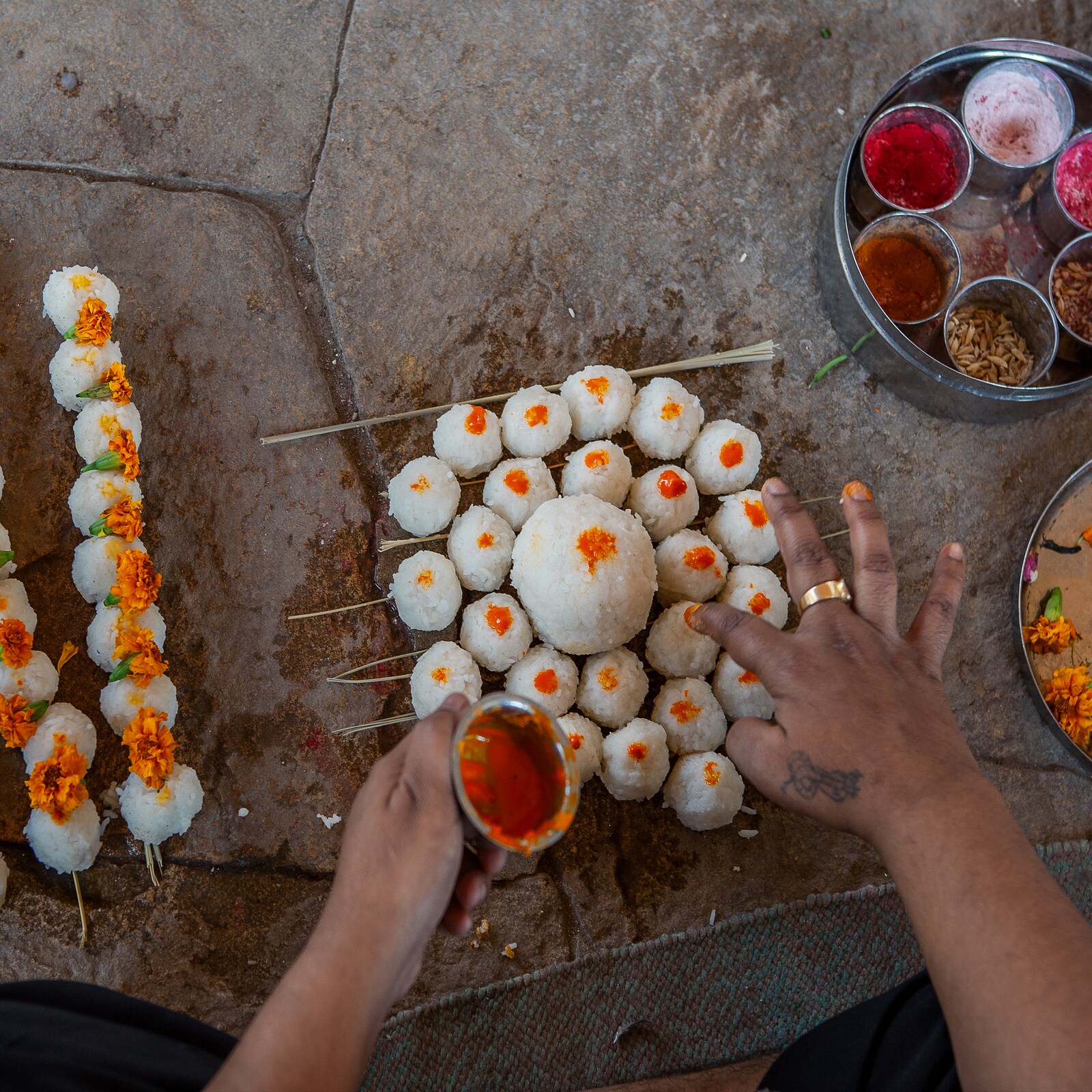Pitru Paksha
Pitru Paksha
Hindus believe in Sanatana Dharma – a lifestyle with prime importance for righteousness, values to respect every living being in the universe as well as those who left us. “Sanatana” means permanent. Following the principles laid in Sanatana Dharma helps us to uplift ourselves towards divinity. Culture and traditions as explained in Hindu scriptures makes us see godliness not only in every living being in this universe, but also in those who left their body. One of the important tradition in Hinduism followed since ancient times is paying homage to our ancestors. Pithru Paksha is one among such traditions followed by Hindus every year. It is known as “Shraadh” karma. Shraadh is a tradition of performing rituals during few days as per the “panchang” (Hindu calendar). According to Hindu scriptures, the soul will wander in several worlds till it gets the next body. Soul has to enter the next body based on the law of Karma. Sanatana Dharma also talks about the liberation in human life. This is a state where the soul will never take the body anymore. Moksha or liberation is achieved only through selfless actions or godly activities.
People express their heartfelt gratitude towards their ancestors who passed away in the lineage during this 16-days of 'Pithru Paksha'. Hindus remember their ancestors by offering prayers by way of rituals as per the scriptures on the day of Shraadh or Pitru Paksha. The 16-day period of “Shraadh” mostly falls in the month of September. This occasion of Shraadh is also a way of expressing heartfelt gratitude towards our lineage for everything our ancestors have helped in the life and for what we are now. It is believed that the departed soul becomes satisfied and peaceful when these rituals are performed by their beloved ones. This helps the soul to burn bad karmas and get a body to reach the state of liberation.
Shraadh days of 'Pitru Paksha' commences on the day of 'Bhadrapada Purnima' and ends with 'Sarvapitri Amavasya'. These days of 'Pitru Paksha' are considered inauspicious by the Hindus as death rites are performed during during this time. So, no new works or business activities or major undertakings are started during this period. It is also recommended to avoid travel. Final day in 'Pitru Paksha' is known as 'Sarvapitri Amavasya', the most important day to perform the rituals as part of “shraadh karma”. It is also known as 'Pitru Amavasya' or simply 'Mahalaya'.
Meaning of Shradh: The word “shradh” in Sanskrit is a combination of the words “Sat” and “Adahar”. Sat means truth or essence and Adhar means foundation or the base. In this context, it symbolizes the act or the ritual that is performed with faith and sincerity with a noble cause in mind. In other words, the shraadh is offered with shraddha or devotion. The order of Shraadh days are – Purnima Shradh, Pratipada Shradh, Dwitiya Shradh, Tritiya Shradh, Chaturthi Shradh, Panchami Shradh, Shashthi Shradh, Saptami Shradh, Ashtami Shradh, Navami Shradh, Dashami Shradh, Ekadashi Shradh, Dwadashi Shradh, Trayodashi Shradh, Chaturdashi Shradh, Amavasya Shradh.
Pitru Paksha – ceremony and rituals: The most important offering is the pinda pradaana – offering of balls prepared with boiled rice, mustard (pinda) and water. Tarpana ritual is also performed, wherein sesame seeds and water is taken in palms and offered by chanting mantras along with the name of the ancestors. There is also a tradition of feeding cows, crows, dogs, beggars on this day. Priests are offered specially cooked food prepared with utmost care and devotion to make sure that the priest is satisfied and fulfilled. Monetary donation is also offered to priests on this day. It is believed that food offered to priests, cows and crows reach our ancestors. Offering of charitable and service oriented activities are another way in which it the shraddha karma day is observed. These include offering food – Anna daanam, Vidya Daan - support for the education of children, etc. Those who are in spiritual path practice meditation, chanting of sacred syllables called mantras, offer prayers to their favourite deity, etc.
Pithru Paksha roots is said to have begun from Rig Veda. It is for those ancestors who left the legacy of their wisdom, protection, love, and material wealth. As we understand, “ancestors” are parents (who are no more), grandparents, and great-grandparents and great-great-great parents from last seven generations. People honour departed spouses, children, siblings, aunts and uncles, and parents-in-law also during this occasion. It is also an occasion even to pay shradh to friends, neighbours, teachers, mentors, and all beloved people who passed away.
Significance: Pithru Paksha is also considered as a time to reflect on the principles of human birth. Hinduism gives high value for bond that exists among all living beings. Pithru Paksha is also the occasion to realise that our life is not just limited to the body. It also reminds about our connection with our loved ones transcending the physical realm. As per several yogic scriptures, the atman or soul is eternal and the human body is peripheral. Similarly, the emotional connect between the living members and those who left the body continues. So, Hindus take this opportunity to express their love by being grateful for everything that has been passed on by our ancestors .
This offering during the pithru paksha is considered as the dharma of those who continue to live in this world. It is beneficial for both who live and those who have passed away. Those who have passed away will get a push towards the higher realm in their journey towards liberation.
Another benefit is we get closer to the forces of the universe that are beyond human vicinity and control.
Offering of prayers will certainly benefit with good fortunes and auspiciousness. It also brings prosperity,
happiness, good health, longevity, contentment and peace in family life.
